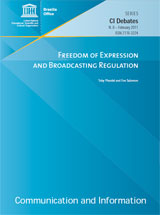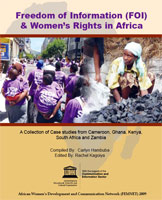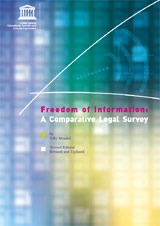This collection of case studies on the CMCs in Nepal is intended to showcase the interesting and diverse growth of this new medium in spite of conflict and the lack of community radio regulation.
Publication year: 2007
The guide Свободное программное обеспечение. Приложения для образования, культуры и доступа к информации has been produced by UNESCO’s Office in Almaty in the framework of its project ‘FOSS for Education, Culture and Access to Information’.
Publication year: 2009
This report provides a new perspective on the social and political dynamics behind the threats to expression. It develops a conceptual framework on the ‘ecology of freedom of expression’ for discussing the broad context of policy and practice that should be taken into consideration in discussions of this issue.
Publication year: 2011
This study, written by international experts, Toby Mendel and Eve Salomon, provides content for reflection on the centrality of regulation for the protection, promotion and guarantee of the right to receive, seek and impart information, ideas and opinions.
Publication year: 2011
This book is a compilation of contributions by the participants of the conference held in Maputo, Mozambique, in May 2008, on the occasion of World Press Freedom Day. A wide variety of authors, from journalists to academics and civil society, express their views on how freedom of information and freedom of expression can help people gain control over their lives.
Publication year: 2009
This publication is one of the outputs of the Freedom of Information and Women’s Rights in Africa Project, a regional programme launched by FEMNET in partnership with UNESCO.
Publication year: 2009
The right to freedom of information, commonly understood as the right to access information held by public bodies, is now widely recognised as a fundamental human right. This study presents (1) an overview of international basis for this right; (2) the best practice standards; (3) the analyses of the laws of 10 different countries; and (4) a comparative analysis of the various laws/policies.
Publication year: 2003
The importance of the right to information or the right to know is an increasingly constant refrain in the mouths of development practitioners, civil society, academics, the media and governments.
Publication year: 2008
The origins of this book lie in a simple question: How best to show UNESCO’s friends and supporters the many exciting developments taking place in Community Access Centres across South Asia?
Publication year: 2007
This publication is prepared by the International Telecommunication Union and Orbicom, the Network of UNESCO Chairs in Communications. This is a contribution to the international community in the context of the second phase of the World Summit on the Information Society (WSIS), Tunis 2005.
Publication year: 2005














